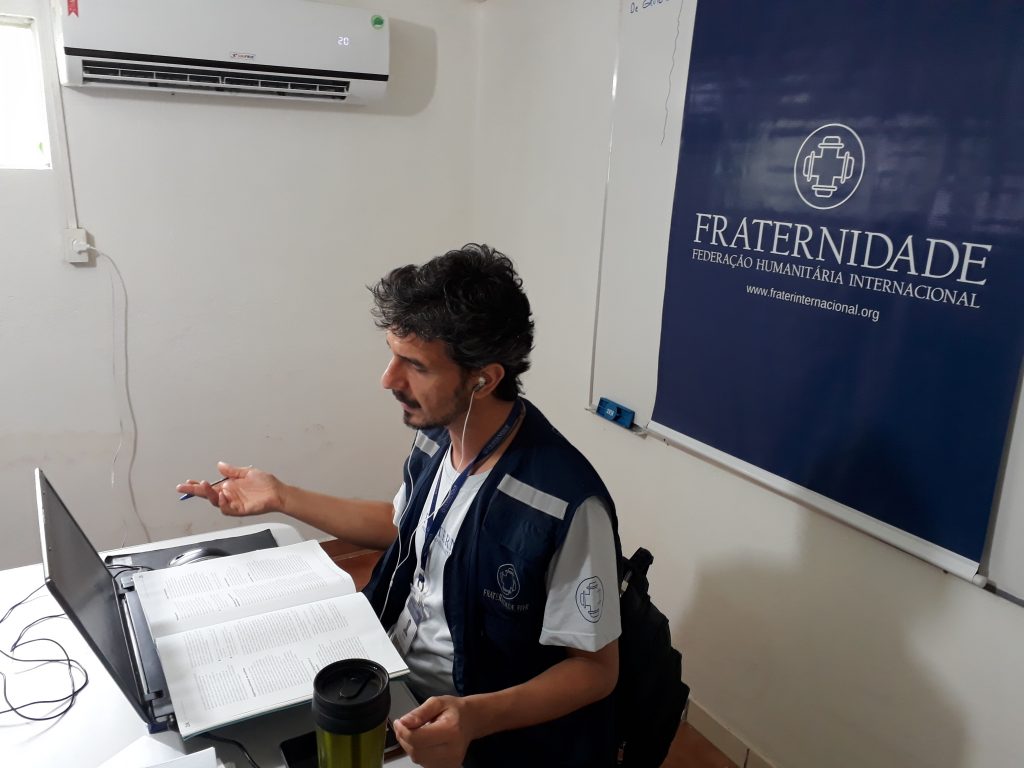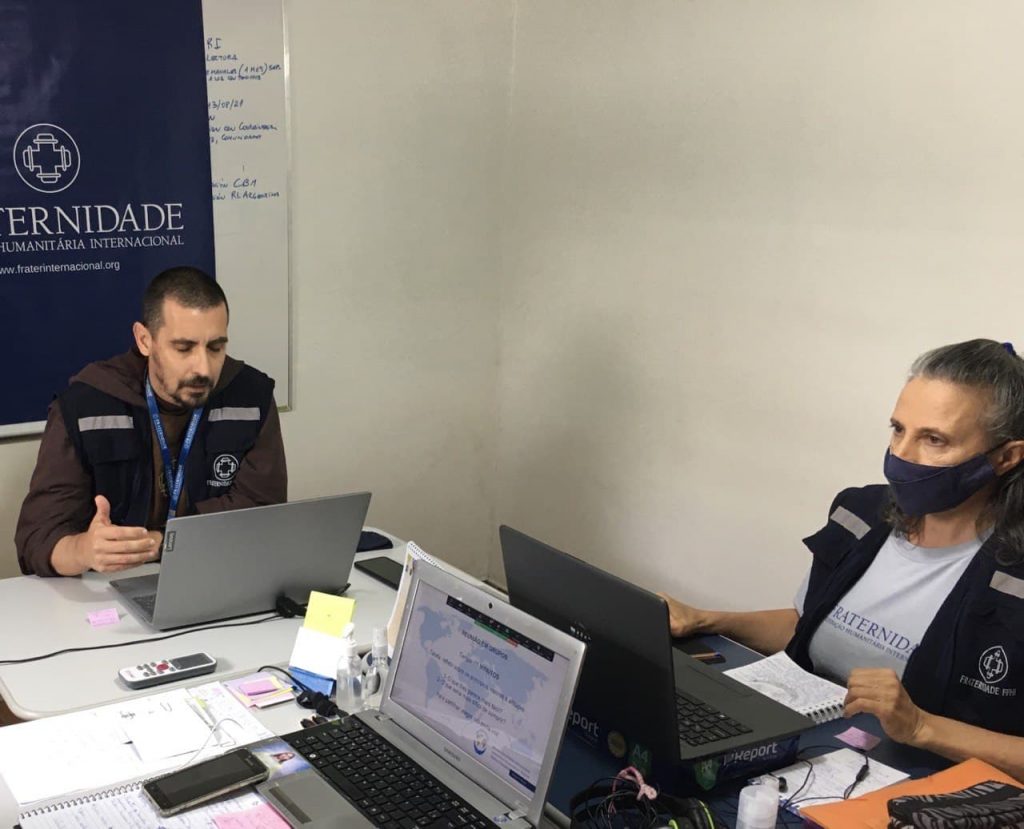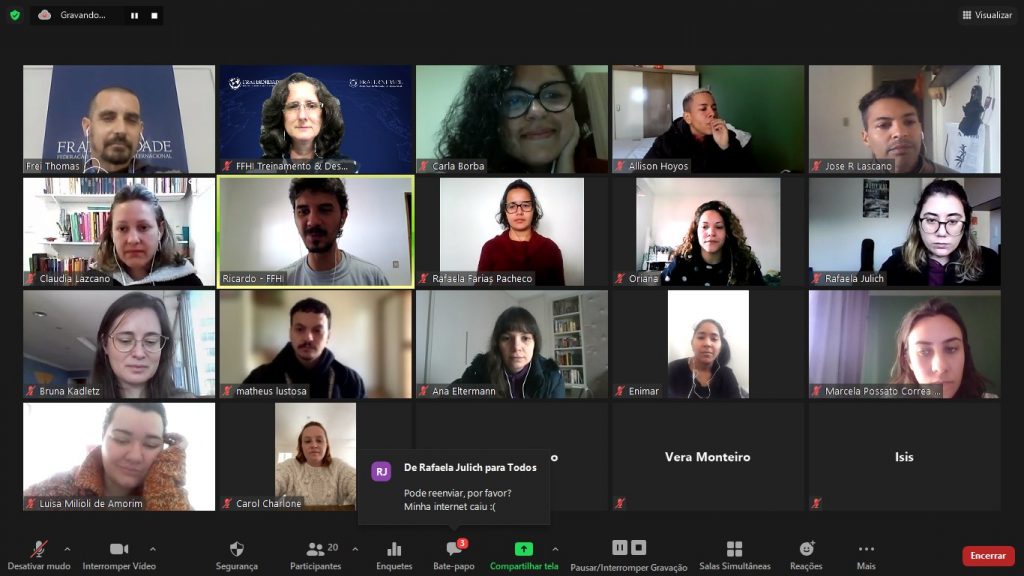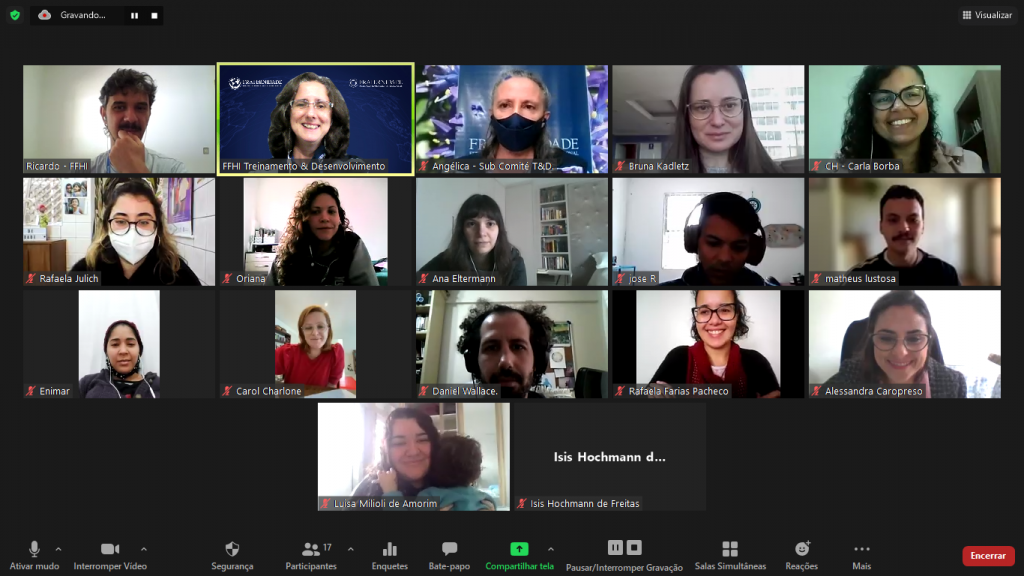The Training and Development Sector (T&D) of the Humanitarian Fraternity (FIHF) conducts training for Florianópolis organization
Considered an indispensable tool for those who are active in the increasing emergency humanitarian responses on the planet, the Sphere Handbook presents an approach to principles of quality and responsibility within the humanitarian context.
The Training and Development Sector (T&D) of the Fraternity – International Humanitarian Federation (FIHF) has worked with several organizations to disseminate the knowledge of the Handbook by means of training sessions and courses.
The last training, in virtual format, was targeted for professionals of the Hospitality Circles, a non-profit organization that works with refugee and immigrant populations, with headquarters in Florianópolis, SC. The training was done through three modules of 2 hours each on August 2, 4 and 6.
The first module was delivered by Friar Thomas, who talked about the work of the Humanitarian Fraternity (FIHF) in the Roraima Humanitarian Mission and other missions, also introducing the Sphere Handbook.
The humanitarian server, member of the T&D Sector, Ricardo Treno, delivered the following modules. He explains that the training was of an introductory nature for attendees of whom the majority had not had any contact with the material. “We presented the eight chapters of the Handbook, but emphasized the Protection Principles, that had been requested of us. There was a greater focus on that chapter and a contextualization of the content with the reality of the Roraima Humanitarian Mission,” he emphasizes.
Even though they were not familiar with the Handbook, the attendees were aware of the issues of vulnerable populations and the need for protection. According to Ricardo, they were very committed, and the content was very broad. “The Sphere approach, placing people affected by disasters at the center of the response, is something that always broadens the perception of what a quality humanitarian response really is. I believe new perspectives have been introduced for a greater scope of work with these most vulnerable groups.”
The voice of the “Hospitality Circles”
The president and projects coordinator of the Hospitality Circles organization, Bruna Kadletz, who is familiar with the work of the Humanitarian Fraternity (FIHF) and has already worked as a volunteer in the Roraima Humanitarian Mission in 2018, highlights the importance of the training: “Very welcomed, because we are expanding our services and our network of collaborators, both of the technical team and that of the volunteers. All the training that teaches us and reminds us of humanitarian principles, brings us information for our daily lives, and also the philosophical foundation on the importance of these actions, is relevant.
Bruna emphasizes the importance of the knowledge in the Sphere Handbook. “It is an invaluable tool for professionalizing volunteer service, which many times is motivated by the desire to help. People believe that this well-intentioned help is already enough. We understand that training and education are necessary for offering well-founded and quality humanitarian work. In light of the humanitarian crises we are experiencing, the more people are familiar with the Sphere Handbook and prepared to apply all the basic principles, the more they have to offer,” she concludes.










